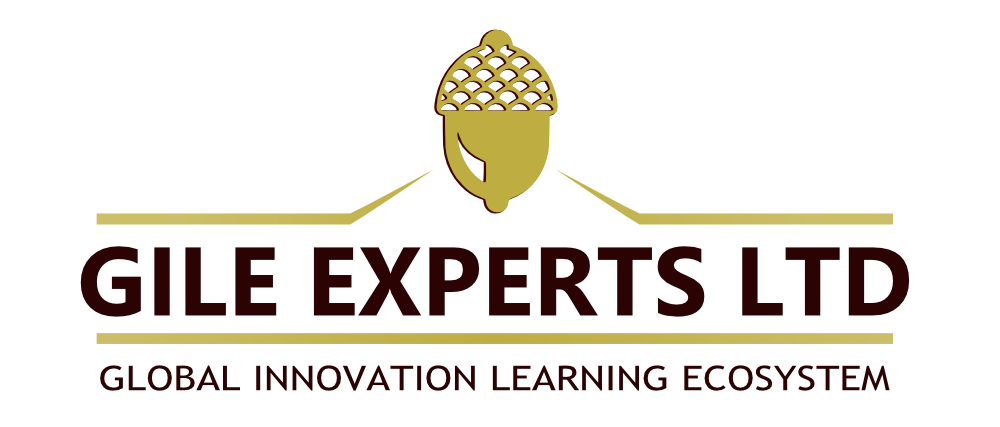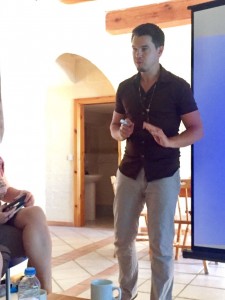Nothing is free…Understand, plan, work, earn, help…
During the week 8th-15th June 2017, for the first time in GILE Experts’ history Gozo became a location for their learning program on digital marketing and innovation. Dr. Mindaugas Lauzikas (Malta, Lithuania) and Digital Consultant Timu Fokinas at www.googleadwordshero.co.uk (the United Kingdom) invited representatives of different service industries to discuss the role of digital marketing, new technologies and social innovation on sustainable business growth.The participants from Hospitality, Catering, Creative Industries, IT, Education, Finance, Sports & Fitness, Wellness & Spiritual Practices, and Non-governmental Organizations (from Lithuania, Malta, the United Kingdom, and Italy) joined interactive real business case-based seminars in Gozo. Half of participants were nascent or young entrepreneurs being in business for less than 3,5 years, while other half were established entrepreneurs. Notwithstanding that all the represented industries have unique development peculiarities GILE experts identified key success factors among the participants: social impacts/ positive externalities, the role of key strategic partnerships, and new technologies.
According to Rebekah Debono (2017), the business model of her company Rhiyz (Restorative Holistic Integrated Yoga Zone; https://bookretreats.com/5-day-transformational-stillness-yoga-retreat-malta) incorporates a set of factors, such as education, healthcare, social entrepreneurship, wellness, sport, aroma therapy, and spirituality. Therefore, her business must be driven by social innovation and strategic partnerships with educational and healthcare organizations. This is in line with the mission of Lithuanian non-governmental organization VšĮ ,,Ištiesk gerumo ranką nuskriaustiesiems” (http://gerumoranka.eu/). Director of this organization Algimants Patackas (2017) agrees that fundraisers must understand their target market and be oriented to both socially excluded groups and investors. In parallel to generating social value to the society, social entrepreneurs must apply the newest business intelligence, project management and digital marketing techniques, understand business trends and be capable to contribute with concrete value to success of their investors. According to Algimantas Patackas (2017), within negotiations with potential investors fundraisers should try to offer their sponsors new ways of strengthening brands, market research competences (including data collection), and educative projects for employees. Within GILE’s learning program, the established entrepreneurs focused on the opportunity of moving from Cost Leadership Strategy to Differentiation Focus or Leadership stage, which could be achieved via social innovation.
According to Dees (1998), social entrepreneurs play the role of change agents in the social sector by creating social value, identifying and pursuing new opportunities, running innovation processes, managing social innovation-related resources with a strong responsibility and accountability. GILE Experts argue that via sustainable business strategies social businesses can generate both economic and social added value for a company and society; however, social entrepreneurs, particularly nascent, should understand: ‘Who they are’, what is their target market and consumer value proposition (competitive advantages in the market). Understanding of marketing and innovation strategies is critical for social entrepreneurs as they are change agents. It is getting difficult to run big projects and create value without key strategic partnerships. Thus, social entrepreneurs must demonstrate quality and professionalism of operating in huge networks of stakeholders (including big companies, educational organizations, R&D transfer agents, clusters, and etc.).
Social entrepreneurs should acknowledge and measure their economic and social impacts for many reasons:
- Social effects are drivers of their business
- Change agents need to be transparent and accountable for every output and input
- They need to differentiate themselves from other social entrepreneurs while indicating which part of value chain they modify (shortening, fastening, modernizing, improving quality, cutting cost, and etc.).
While entering service innovation-driven economies (such as the USA, South Korea, Scandinavian countries, Estonia, the United Kingdom or Australia; GEM 2016/2017) social entrepreneurs face the competition in terms of quality, cost, and differentiation; therefore, successful entrepreneurs apply the newest technology; they are dynamic in their strategic networks of stakeholders as well as efficiently use existing R&D transfer mechanisms in order to grow their income, profits, and social value.
Social entrepreneurs need to offer their financial sponsors some exchange value via research, project partnership, education or brand creation. Moreover, they need to speak the corporate language of their sponsors and understand the potential synergy effects among stakeholders.
Within the resent empirical analysis of the factors affecting social entrepreneurial intentions, published by SpirngerOpen Journal of Global Entrepreneurship Research (2017), Preeti Tiwari, Anil K. Bhat and Jyoti Tikoria propose Hypothesized Social Entrepreneurship Intention Model, where emotional intelligence, creativity and moral obligation affect social entrepreneurship intention via intermediary factors, such as subjective norms, perceived behavioral control, and attitude towards becoming a social entrepreneur. While analyzing engineering students’ self-perceived creativity, Preeti Tiwari, Anil K. Bhat and Jyoti Tikoria (2017) found out that there was a strong bonding between creativity and social entrepreneurial intentions. GILE Experts agree with their findings that education and governmental policies are main triggers for social entrepreneurial intentions and activities: studying environment in favor of forming social entrepreneurship intentions via creativity and knowledge diffusion would be advantageous in modern education systems.
So let us create new value-added via exciting projects, social innovation, and new strategic partnerships!





